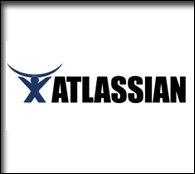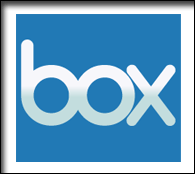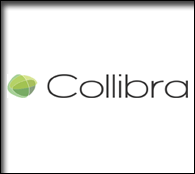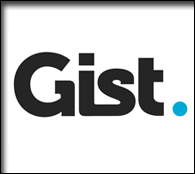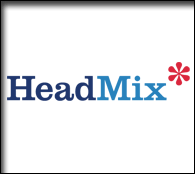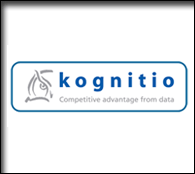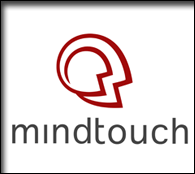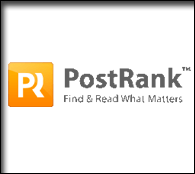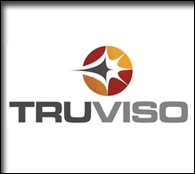Archive for August, 2007
This just saddens me
by Eric Norlin on Aug.30, 2007, under general
That I even have to write this saddens me. It doesn’t anger me or outrage me or piss me off, it just saddens me. This is simply because I feel like it is all about one big misunderstanding.
Okay — here’s Tara’s post, wherein she basically trashes Defrag for not covering hotel and travel for her as a speaker at the conference, and in the process implies that we’re (I’m) somehow making HUGE dollars off of the event.
I don’t even know where to begin…
1. I don’t know Tara. I hear great things about her from people I do know, and I love her blog. Yes, I asked her to speak. Yes, I didn’t ever tell her that I wasn’t going to pay for hotel and travel (not because I don’t want to, because I can’t afford to) — for that misstep, Tara, I apologize.
2. It is more than standard practice for tech conferences not to pay for hotel and travel for their speakers. If folks would like to debate that, I’m more than open to doing so. Anyone who knows me knows that I’m am SO FAR from an “inside industry” guy that I’m open to debating *everything* about conferences.
3. On transparency: I will be *totally* transparent right now about who I’m paying anything for….David Weinberger is receiving one hotel room night, and the advisory board is receiving 2 hotel room nights. That’s it.
4. As for our “healthy sponsor list” — I really would’ve gone so far as to sit down with a spreadsheet and shown Tara the numbers. She talks about having worked on shows that cost 500k to put on, but made 2mm…..If you think Defrag is making 2mm, you’re nuts. If you think we’re making 1mm, you’re nuts. Bottom Line: our sponsors are essentially covering our costs (almost).
5. Tara then says that selling an attendee ticket would cover her costs. Yes, it would. I’d be happy to do that - but most folks don’t register for a show until the last three weeks. So, I’ll have no idea if I can afford to do that until *after* the show.
6. The other thing that saddens me: I told Tara that I’d love to cover this, and I would in year 2 if I could.
7. For the record: I collect no salary on Defrag. Yes, you read that correctly, I work for *free* and only make money if the show makes money. Again, I would’ve shown Tara exactly what I *think* I’ll make this year (because I don’t actually know) — I guarantee it is *shockingly* little.
8. And then the comments begin…..again, for the record: I’m not some evil business guy who is just here to make a buck. I started Defrag out of love for something; because I’m passionate about it. That’s it. I’m a tech guy.
Lastly:
“if you are throwing a for profit conference that looks to be a profit-maker, you need to, at the very least, offer to cover the costs associated with the travel for the speakers.”
I agree. I’ll know this sometime in December.
9. Look, I *know* that our speakers are the best people in the world and that I’m nowhere without them. And I really would do anything I possibly can to show people how much I appreciate them. That’s why this post seemed so unfair to me. To all of Defrag’s speakers: THANK YOU.
I’m going to go lick my wounds and try to come back on tuesday with a positive attitude. Have a great weekend.
[ps: Thanks to all of the speakers that wrote me yesterday to comment on this and express their support.]
Early Bird (and your new iMac) is expiring!
by Eric Norlin on Aug.29, 2007, under general
Just a gentle reminder that early bird pricing for Defrag expires this Friday — at which point, pleas of “can I please get in cheaper” will fall on deaf ears. In other words, don’t delay. ![]()
Second reminder, every one that registers under early bird has a 1 in 10 chance of winning a new iMac.
The last gasp of summer
by Eric Norlin on Aug.29, 2007, under general
Can you feel that?
I woke up this morning and I can feel the entire country s-l-o-w-i-n-g d-o-w-n for the last gasp of summer as we head into a long weekend.
My house/office overlooks a street of resorts on a beach, and NO ONE is here. All is quiet.
The same seems to be becoming true for the tech world as we progress toward Friday.
Enjoy that last bit of relaxation. Come next Tuesday, the fall rush is on.
Unraveling the Defrag narrative, part 1
by Eric Norlin on Aug.27, 2007, under Uncategorized, narrative/session descriptions
A recent banner ad that we ran touted Defrag as “the intersection of the Implicit Web and Enterprise 2.0″ — one of those phrases that you hope captures something, even if you’re not quite sure what that something is. Actually, wrapping our heads around the ideas that formed Defrag has been something we struggled with from early on (or at least, naming it all). The convention that I’ve used to describe it is the “aha moment” - that flash of insight that occurs in a collaborative session like a brainstorm. Defrag, then, was about building tools that would help to “accelerate the aha” — and it has always seemed that those tools were made up of “implicit things” (things working behind the scenes) and collaborative, enterprise 2.0-y things. Thus, the “intersection.”
As part of digging into Defrag’s narrative, I wanted to play amateur etymologist, so I began with “implicit.” The past participle of “implicate” (from implicare), implicit speaks to an entangling, an intertwining, interlacing, a twisting together. Its opposite, explicit, is that which is unequivocal, expressed and demonstrated. So, by extension, that which is implicit carries natural overtones of ambiguity — which makes sense as the intertwined, interlaced, intertangled nature of the word doesn’t lend itself to the hard edges of an easy definition.
All of that becomes very interesting as we look at the “implicit web” (which is almost redundant) in the light of “attention.” The general idea has been that we leave “traces” of our attention, and that sewing together (interlacing?) these traces can allow some tools to begin to perform operations behind the scene *for* us. In this sense, implicit is being turned to reflect a web that serves us, caters to us, bends the entanglement to our help.
The implication (pun intended), of course, is that the implicit web is one big pile of miscellaneous stuff. That we begin entangled, and through the use of certain tools, are able to derive insight — not from untangling (for the value lies in the entanglement), but rather from the dynamic connectedness of the entanglement (and how that allows for an individual to arrange on the fly according to his or her desires, wants, needs, etc). If everything is miscellaneous and unconnected, we’re screwed. But connected, we walk into the simulator of the Matrix, where we need “guns” — and rows appear according to our liking.
The “Implicit Web” are those qualities that enable us to race toward insight at a faster pace — to discover and assemble the miscellany in such a way as to bring something to collaboration that may not have been as readily available in the past; a hermetic quality of speed and mercurial insight.
You can see where I’m going with this, right?
David Weinberger is our lead-off speaker at Defrag because his thoughts on “everything being miscellaneous” will basically throw a bunch of useful toys, tools and teachings into our mental playroom.
We begin by looking at the moment of insight — and that leads us into the interlaced world of the miscellaneous.
[note: some would say this is where we run into business intelligence.
Defrag and Cirque du Soleil
by Eric Norlin on Aug.26, 2007, under defrag "theory", general
Sometimes vacations afford you the opportunity to turn the prism of work on its side and look at things differently.
On our recent jaunt to Vegas, we had the good fortune of seeing Cirque du Soleil’s production, KA. If you’ve ever seen Cirque du Soleil do *anything* you know how amazing they are, but KA blew away anything I was expecting. They spent 2 years and 10 million dollars simply constructing the *stage* (which was capable of going up 90ft in the air and rotating 360 degrees). Watching this commercial won’t even come close to doing this show justice (it is worth flying to Vegas simply to see this; yes, it is *that* good).
That experience got me thinking about the boundaries within which we normally constrain “tech conferences.” Tech conferences really don’t stretch themselves at all. I mean, there’s an incredible *consistency* of format and feel (form and function): Put some speakers on stage, have some sponsors, pick a topic. In fact, *most* conference producers assume that the excitement comes from picking a topic that is relevant to the audience — although attending ANY show on “SOA” in the last three years would certainly tell you otherwise. At the end of the day, there’s really very little thought given to content. And there’s even less thought given to content in the context of *narrative.*
Cirque du Soleil creates an *experience*. They take great care in crafting the details of that experience and they are experts in understanding that experience is, well, experiential. All of that experiential stuff drives toward a central narrative — a story line that unfolds, draws you in, makes you care and excites you.
What would a tech conference look like if we approached it like Cirque du Soleil approaches a production? Can you imagine a tech conference that spent 2 years building the arena in which it would all take place?
Or, more simply, can you imagine a tech conference that spent time on “the narrative” — building a story arc that unfolded as you went through the show? So, that it wasn’t all simply “powerpoints and Q&A.” This is, of course, part of what’s driving the current “unconference” movement — and there’s power in communal narrative, but there’s also something about a well-crafted story that is told *to* you.
As I think about all of the above and Defrag, I’m a little overwhelmed by trying to reconcile what my brain can imagine and what reality can handle. It makes me want to start with the narrative. What is Defrag’s story arc? How does that unfold throughout the show? Have I paid enough attention to what we’re all there trying to discover?
These are the questions that I’ll be blogging through in the coming week. I’m back.
Silence
by Eric Norlin on Aug.21, 2007, under general
Sorry for the silence this week. I’m off getting married and having a “mini-moon.” Defragging will resume next week.
More on Continuous Partial Attention, Relevance, Overload and nearly everything else
by Eric Norlin on Aug.17, 2007, under speakers
Paul Kedrosky’s moderating a panel on “Information Overload and Relevance” at Defrag (or, as Paul calls it “ADD”), and today we’ve made a great addition to that panel.
Joining Paul and Bradley Allen (of Siderean) will be James Altucher of Stockpickr.
Not familiar with James? Here’s a short bio.
Yes, the gathering at Defrag will be a room of people that are waaaaaay smarter than me. You should come join us.
Calacanis marks the bottom
by Eric Norlin on Aug.17, 2007, under industry stuff
In a classic “leaning the wrong way” move, Jason Calacanis has marked the bottom with a post about a “mini-popping” of the bubble. That, combined with Technorati and PodTech replacing their CEOs, seems to have eased all worry on Wall Street, as the market is opening up 300 points today.
I am, of course, joking - as the Fed cutting the discount rate is signaling an “all clear” for the truly troubled sections of the market. But it’s more than slightly ironic that Jason gets worried and two highly visible tech companies have their CEOs step down on the eve of the Fed taking action.
Jim Cramer just said we’re now guaranteed to go to Dow 14,500 by the end of the year. Is the credit crunch over? Will advertising stay stable? Will M&A pick up again? Is the IPO window going to open for tech companies?
The answer to all of those questions (which is “yes”) will probably take another 4-6 months to shake out, but this now firmly looks like today will be remembered as the day we cleared a major economic hurdle.
Let the bubble blowing resume. ![]()
Defrag Speaker: Brad Feld
by Eric Norlin on Aug.15, 2007, under speakers
(okay, he’s a *bit* more than just a speaker….) ![]()
Here’s how Brad describes himself: “Brad Feld is a Managing Director at Foundry Group and Mobius Venture Capital. Prior to Mobius, Brad founded Feld Technologies, which was sold to AmeriData Technologies in 1993, where he became Chief Technology Officer. Brad currently serves on the boards of a number of private companies, including ClickCaster, ePartners, FeedBurner, Gold Systems, Judy’s Book, Lijit, Me.dium, NewsGator, Rally Software, and StillSecure. In addition, he is on the board of The National Center for Women & Information Technology, The Community Foundation Serving Boulder County, and The Colorado Conservation Trust. Brad has previously been a member of the board of directors of the Young Entrepreneurs Organization and founded the Boston and Colorado chapters. He holds Bachelor of Science and Master of Science degrees in Management Science from the Massachusetts Institute of Technology.”
Eric’s backstory on Brad and Defrag: Brad’s blogging was the original impetus for Defrag. I was reading along with everyone else about some topics, and dropped Brad a note saying that I thought there was a “conference to do here - and I think it should be called Defrag.” Brad responded with “I’d love to play on Defrag” - and we were off and running. A few phone calls later and we were launching a conference. The funny part was that although I’ve met Brad once face to face (he turned down Ping Identity for funding when I was a VP there - we met in “the pitch”), we’ve never interacted that much. Launching Defrag with Brad’s help has been a great experience, and I’m already looking forward to building things out even further in 2008. I think Brad initially hit upon a very important topical thread, and my belief is that the community forming around Defrag is going to help materialize that thread into a whole area rug (sorry, sticking with the textile metaphor).
Getting closer
by Eric Norlin on Aug.14, 2007, under general
Oooooh, now *that’s* a little more like it — I can now subscribe to my friend’s status and posting updates on Facebook and it feeds into my RSS reader. (Check the bottom right hand corner, right sidebar on your status update and posting pages.)
I’ve been wanting this out of Facebook since the first day I joined. Tying into the “feed universe” and beginning to “open up” their platform brings them closer and closer to being a true “platform” for me (blogging, aggregating, networking, doing business, marketing, communicating without spam, IM’ing, etc).
Let’s hope they keep moving the slider toward “open” on the “open vs. closed” spectrum. ![]()
